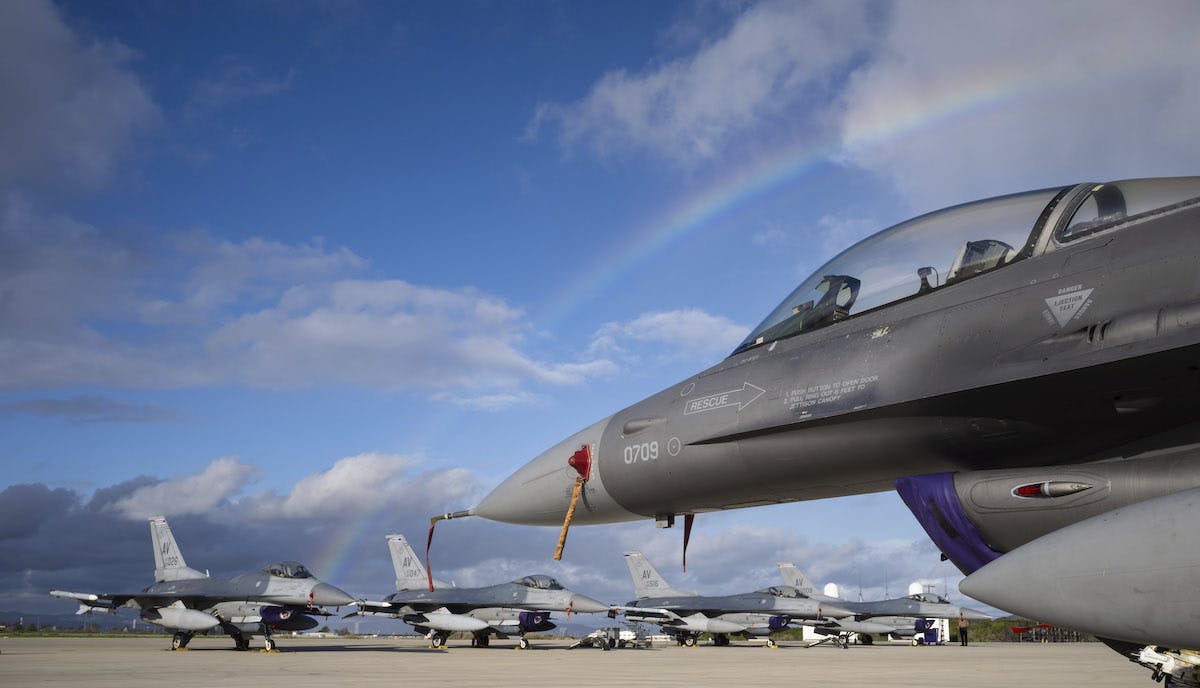Air Force Deputy Pushes Zero Trust on Mission Partner Environment
The Air Force considers how to retrofit the mission partner environment with zero trust principles amid growing cyber priorities.

Future technology solutions within Indo-Pacific region defense operations will need to be built on zero trust, the Air Force’s zero trust deputy chief said at AFCEA TechNet Indo-Pacific in Honolulu this week.
“Any mission partner environment that we are going to use at the Department of Defense of the United States is going to be built with technologies that are surrounding zero trust. So if you want to play the mission partner environment game, you have to do so with zero trust as your foundation,” said Department of the Air Force Zero Trust Functional Management Office Deputy Director Capt. Ryan Fraser.
The service just released the second version of its enterprise zero trust strategy that outlines goals it will accomplish through fiscal year 2026.
Zero trust principles have helped foster collaboration with key mission partners in the Indo-Pacific region while keeping critical data out of the hands of those who should not have access to it. This in turn allows more data to be securely shared amongst and between partners, Fraser said.
The Department of the Air Force serves as the executive agent for the secret and below releasable environment, or SABRE, a software tool designed for information sharing between the military and its partners.
Although the mission partner environment is nothing new, Fraser said their longevity is creating new issues since they were not designed at a time when building off zero trust principles had not been a priority. Plus, the partners now make up not only other militaries, but also civilian infrastructure in countries that might be culturally different than the U.S. military when it comes to cyber hygiene.
Despite Air Force’s role over SABRE, Fraser emphasized that all components of the DOD will have to build their own roadmaps to abide by zero trust principles as it relates to external partners.
“Regardless of what service you’re in or what function you perform in the DOD, Air Force mission partner environment guidance is going to affect you,” Fraser said.
Fraser said that the DOD must consider cultural awareness when collaborating with partners and shape its cybersecurity practices and access to those it is working with, without fully compromising its own principles.
“We have a lot of resources and a lot of effort that we can put into making these technologies work,” Fraser said, highlighting the potential of cost-prohibitive policies on mission partners.
“Some people aren’t going to be able to pay to play. The [department] is looking really hard right now at how we can frame things in a way that gets relevant data to the warfighter, regardless of where they’re from, as long as they’re doing the mission that needs to be done,” Fraser said.
This is a carousel with manually rotating slides. Use Next and Previous buttons to navigate or jump to a slide with the slide dots
-

Navy Installations Shift to Continuous Cybersecurity Model
Shery Thomas details how Navy Installations Command is aligning with the service’s continuous cybersecurity strategy.
14m watch -

Securing APIs With Zero Trust Strategies
Leaders from CISA, CMS and Akamai discuss how agencies are strengthening API security, balancing open data mandates and implementing zero trust.
20m watch -

The Value of ‘Pause, Breathe, Summarize’ in Cyber Leadership
A simple framework for clarity when everything feels urgent.
25m listen -

Marine Corps Rethinks How it Fights in Cyber, Contested Environments
The Marine Corps is adapting its force design to counter expeditionary threats, operationalize cyber capabilities and enhance joint deterrence.
3m read








